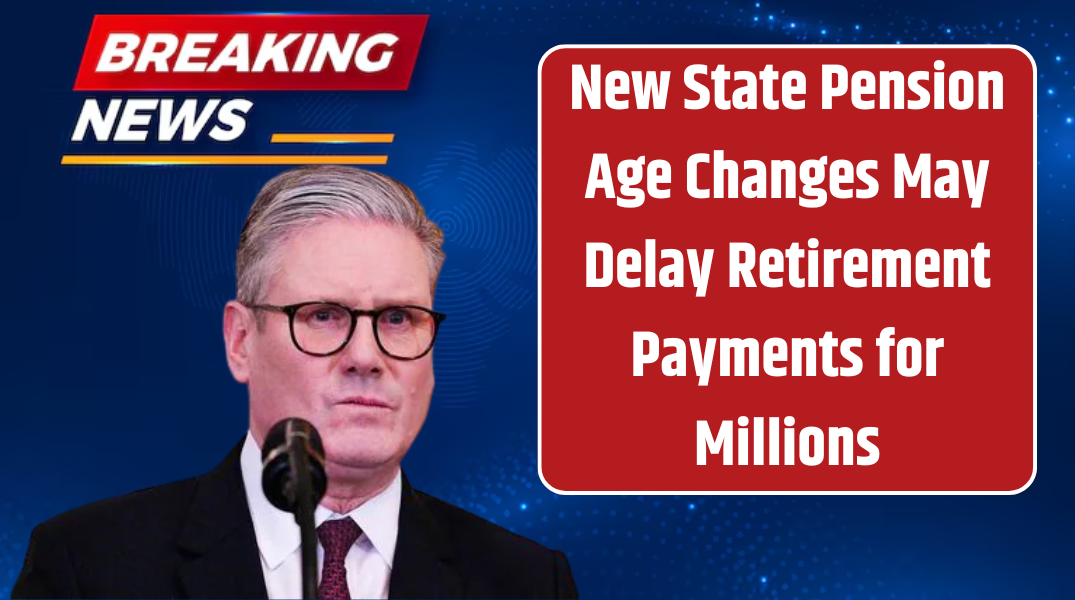As the UK approaches 2025, significant changes are on the horizon for millions of current and future retirees. The State Pension age is officially scheduled to rise from 66 to 67 starting in 2026, with the transition expected to be completed by 2028 for both men and women across the UK.
This adjustment has been part of government legislation since 2014, and although discussions about increasing the pension age to 68 have been ongoing, the Labour government under Sir Keir Starmer has currently shelved any immediate plans to advance that timetable. Nonetheless, pension age reforms remain a live issue, with further reviews expected during this parliamentary term.
Why Is the Pension Age Increasing?
The rationale behind raising the State Pension age is straightforward: people are living longer, placing greater financial strain on government resources. Extending the working age is seen as a way to ensure the long-term affordability of the State Pension.
Under the previous government, there had been talks about bringing the increase to age 68 forward to 2041-2043. While this remains uncertain for now, the government is still required to provide at least 10 years’ notice before making any such change — a lesson learned from the WASPI women scandal, which impacted around 3.6 million women born in the 1950s.
How the Current State Pension Looks in 2025/26
New State Pension (Post-April 2016)
-
Weekly Payment: £230.25
-
Four-Weekly Payment: £921
-
Annual Total (2025/26): £11,973
It’s important to note that not everyone receives the full amount. Entitlement depends on National Insurance Contributions (NICs), with 10 years of contributions required for any State Pension and around 35 years for the full amount (more in some cases due to contracting out).
Also Read – Personal Allowance Raised to New Tax-Free Limit £47,000 – How It Could Benefit Millions of Working Brits
Basic State Pension (Pre-April 2016)
-
Weekly Payment: £176.45
-
Four-Weekly Payment: £705.80
-
Annual Total (2025/26): £9,175.40
The Bigger Picture: Affordability and Demographic Pressure
The latest figures from the Department for Work and Pensions (DWP) show that 13 million people currently claim the State Pension, with over 1.1 million living in Scotland.
-
34% receive the New State Pension
-
66% remain on the Basic State Pension
By 2070, projections suggest there will be 5 million more State Pensioners but just 1 million more working-age individuals. This imbalance highlights the mounting pressure on the government to either adjust eligibility ages or reform the pension system altogether.
Key Findings from Phoenix Insights on Retirement Preparedness
A report from Phoenix Insights reveals some worrying statistics:
-
Only 18% of adults believe they could live comfortably on the State Pension alone.
-
35% of people aged 60-65 have no private pension savings.
-
45% of adults expect to work beyond their State Pension age to make up financial shortfalls.
-
If the rise to age 68 is brought forward, around 3 million people would face delayed retirement.
What’s Next?
The government is expected to conduct another State Pension age review during this Parliament, which will clarify the future timeline for any potential increases to age 68. Although accelerated reforms could help reduce future costs, recent life expectancy data suggests people aren’t living as long as previously thought, making such policy decisions increasingly complex.
State Pension Increases: Forecast for the Coming Years
The Labour government has reaffirmed its commitment to the Triple Lock—which guarantees the State Pension will rise annually in line with the highest of inflation, average earnings growth, or 2.5%. Current projections indicate:
| Year | Projected Increase |
|---|---|
| 2025/26 | 4.1% |
| 2026/27 | 2.5% |
| 2027/28 | 2.5% |
| 2028/29 | 2.5% |
| 2029/30 | 2.5% |
Why This Matters for Your Retirement Planning
With ongoing debates about raising the State Pension age and the uncertain future of public retirement benefits, it’s more crucial than ever to:
-
Review your private pensions and workplace schemes
-
Boost your contributions through auto-enrolment if possible
-
Plan for a longer working life if necessary
-
Stay informed about government policy updates
Also Read – State Pension Age Rises to 67 in 2026 – Check If Your Birthday Is Affected
FAQs About the State Pension Changes
1. When will the State Pension age officially rise to 67?
The rise from 66 to 67 will begin in 2026 and will be fully in place by 2028 for both men and women.
2. Is there a confirmed plan to raise the age to 68 sooner?
Currently, there’s no confirmed timeline, but discussions may continue. Any change would require 10 years’ notice.
3. How much will I get on the full New State Pension in 2025/26?
The full New State Pension will pay £230.25 per week, amounting to approximately £11,973 annually.
4. Do I need 35 years of NICs to get the full amount?
Generally, 35 years of contributions are required, but individual circumstances (such as contracting out) can affect this.
5. What is the difference between the Basic and New State Pension?
The Basic Pension applies to those who retired before April 2016; the New State Pension applies to those who reached retirement age after that date.
6. Will the Labour government maintain the Triple Lock?
Yes, Labour has committed to protecting the Triple Lock for the duration of this Parliament.
7. What should I do if I won’t reach the full NIC requirement?
Consider paying voluntary National Insurance contributions to bridge any gaps in your record.
Final Thought
While 2025 may bring modest increases in payments for pensioners, the bigger picture is about planning for the long term. Whether it’s preparing for a later retirement age or enhancing your private savings, now is the time to act. The State Pension alone is unlikely to offer the retirement lifestyle many people hope for.
If you’d like, I can also create a simple timeline graphic showing the progression of State Pension age changes or provide a guide to maximizing NIC contributions. Just let me know!












